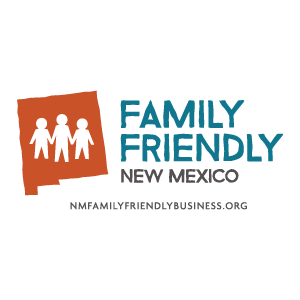Today we welcome Monica Esparza, the Executive Director at New Mexico Breastfeeding Task Force, a Silver level NM Family Friendly Business Award® recipient and valued partner and resource to the business community in our state. We continue the important conversation around Employer Supported Maternal and Child Health!
Why it Matters
Workplace health and wellness is increasingly generating more interest and support with every passing year. It is not surprising that employers are seeing the value in ensuring that employees stay healthy and productive while also lowering healthcare costs. As more and more women enter the workforce, maternal and infant care should be a priority conversation within wellness programs and employer-sponsored coverage programs. For families, having access to reproductive care, prenatal and postpartum care with providers that they trust means receiving preventive care, improving maternal health, fewer complications during subsequent pregnancies and lower rates of hypertension (Optimizing Postpartum Care, 2018).
Employers can play an important role in improving health outcomes of their current and future workforce by ensuring that their workforce has equitable access to the care they need. For employers, the benefits of improving maternal and child health come in at least four ways;
- through lower healthcare costs
- increased productivity
- improved retention and reduced turnover
- a healthier future workforce
So, what can employers do to improve maternal and child health?
Implementing paid parental leave can have a positive impact on productivity, and retention while having a positive impact on the wellbeing of the family by providing the family time to adjust to parenthood and establish breastfeeding/chestfeeding.
- Identify what your current health insurance plan is doing to improve the quality of maternity care. Ensure that the plan includes family building and reproductive care benefits such as midwifery care, homebirth/ doula services, and lactation care options so that employees can access the care they choose.
- Advocate for equitable midwifery, doula and lactation reimbursement and access to services for families in your community especially for the populations that qualify for Medicaid and low-income families.
- Develop supportive lactating employee policies and establish pumping places in the workplace. With 56% women in the workforce, we all need to do our part to improve maternal and child health outcomes.
NMBTF is supportive of all reproductive choices, access and support. The New Mexico Breastfeeding Task Force can suggest creative approaches to support lactating employees, create or improve your lactation policy, and provide signage, information, or resources for your business and staff. Contact us by emailing contact@breastfeedingnm.org or calling (505) 395-MILK (6455). We’re here to help!
FFNM would like to recognize that supporting maternal and child health includes other topics not addressed in this blog. IVF (in vitro fertilization) and adoption are important aspects of reproductive health and important to many families as they plan. Please visit our Resources page for research backed toolkits and sample policies.
RESOURCES
- Virtual Panel: The Future of Maternal and Child Health Care in New Mexico
- Hidden Value: The Business Case for Reproductive Health
 Monica Esparza
Monica Esparza
Executive Director, New Mexico Breastfeeding Task Force
Monica Esparza is currently the Executive Director of the New Mexico Breastfeeding Task Force. She is a trained Certified Lactation Counselor and Community Interpreter who previously served families as a breastfeeding peer counselor for more than 10 years, providing peer-to-peer support to lactating families through the WIC program both individually and in the hospital setting. Her training includes T.O.P. and New Mexico First facilitation trainings. She is also a leader in the Health Connect One Birth Leadership Academy and NM Women of Color Leaders in Non-profit alumni. She has served on different boards and currently sits on the National College of Midwifery and the NM CNM advisory board. As a Mexican, Immigrant woman living in the south valley of Albuquerque, she brings a grassroots community approach and an equity lens into her every aspect of her work. She understands the importance of centering families and BIPOC communities is a crucial step into achieve birth equity. She enjoys hiking and gardening with her husband and 2 children.

